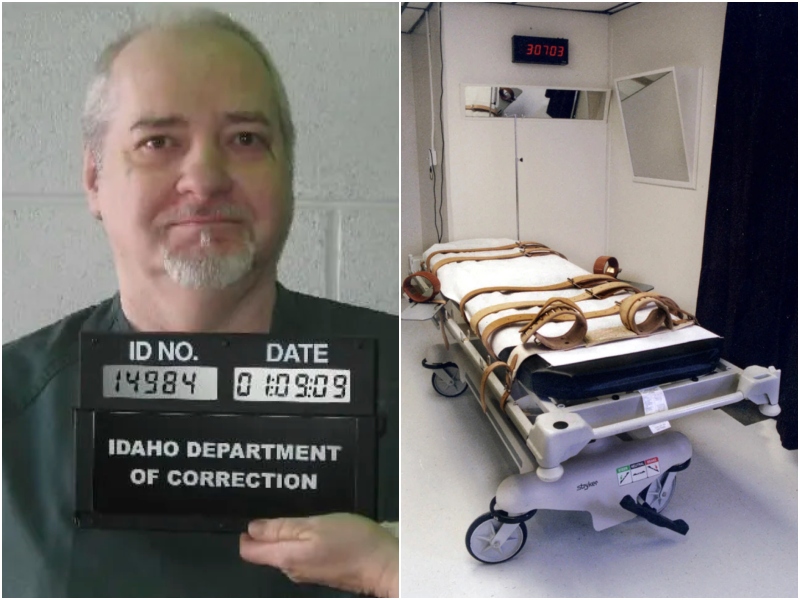The planned execution of Thomas Eugene Creech, one of the nation’s longest-serving death row inmates, was abruptly put on hold Wednesday in Idaho after a series of failed attempts to establish intravenous access for the lethal injection.
Creech, 73, convicted of multiple murders across three states, including the killing of a fellow prisoner in 1981, faced execution by lethal injection, the most common method of execution in the United States.
What Went Wrong?
Medical personnel struggled to establish IV access on Creech, attempting eight times to do so, citing difficulties in both accessing and maintaining the quality of the veins.
The execution team ultimately decided to halt the procedure, acknowledging the unlikelihood of successful IV access. The incident is one of several recent botched executions across the country, raising concerns about execution procedures and transparency surrounding lethal injections.
Challenges in Execution Procedure
Issues with finding suitable veins during executions have persisted since the inception of lethal injection as a method of execution.
Factors such as dehydration, stress, and room temperature can contribute to difficulties in accessing veins. Moreover, the training and experience of personnel responsible for IV insertion during executions vary, potentially impacting the success of the procedure.
Next Steps for Creech
With Creech’s death warrant now expired, the timeline for any future execution attempts remains uncertain. Options for alternative execution methods, such as nitrogen hypoxia or firing squad, are being explored but may require changes to state statutes.
Creech’s attorneys have filed for a stay in federal court, arguing that the botched execution attempt underscores the state’s inability to carry out a humane and constitutional execution. However, the outcome of these legal challenges remains uncertain.
Implications and Criticisms
The failed execution of Creech has reignited debates surrounding the constitutionality and humanity of the death penalty.
Advocates have called for increased transparency and accountability in the execution process, emphasizing the need for comprehensive reviews of execution protocols and procedures.
Creech’s case highlights the complexities and ethical dilemmas inherent in capital punishment, with legal challenges likely to continue as states grapple with the execution of death row inmates.

